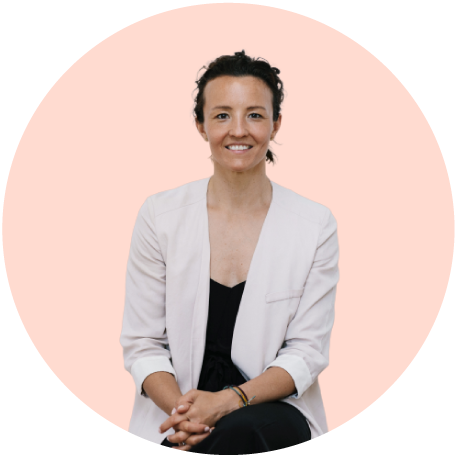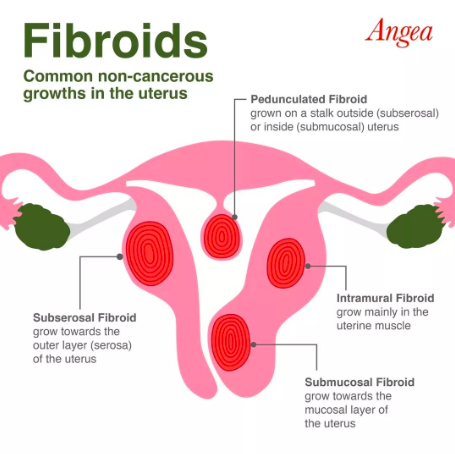Uterine Fibroids also known as leiomyomas, are a common gynaecological condition that impact individuals in their reproductive years. Fibroids affect around 70% of caucasian women and have a higher prevalence amongst African American women around 80% due to genetics and environmental factors. Research also indicates the use of the pill before the age of 16, early onset of menarche and a > BMI are associated with higher risks of developing fibroids.
Fibroids arise from the smooth muscle of the uterus, and are composed of fibrous connective tissue, encapsulated with a pseudocapsule of areolar tissue – fascinating! Evidence shows fibroids tend to shrink once women have passed menopause due to the cessation in hormones.
Interestingly fibroids have an increased expression of both estrogen and progesterone receptors which makes them extremely sensitive to steroid hormones. Studies indicate that ovarian steroids, estradiol, and progesterone, promote the growth of fibroids, which is why hormonal health is key to supporting fibroids.
Recent Studies on the genome of uterine fibroids has found that there are many new signal transduction pathways that influence uterine growth as well as the impact of extracellular matrix on the growth of fibroids.
Clinical symptoms include pelvic pain or compression bladder, heavy & irregular bleeding, gastrointestinal issues, fertility challenges and in some cases pregnancy related complications.
Fibroids are determined by the size, location and number. They can be singular or in clusters and often range from the size of a pea to grapefruit. In clinic we’ve seen a couple of cases where the size of fibroids have been the size of a whole watermelon.
Fibroids are known to cause an enlarged uterus that is irregular in shape. This is called a bulky uterus and is confirmed via ultrasound or MRI. Physical examinations of the uterus can also detect changes in size and shape. Many fertility patients learn they have fibroids post a hysteroscopy.
Sadly, fibroids are often mistaken for heavy periods. Test don’t guess. It’s important to know whats under your hood!

Amanda is the founder of Angea and has over 12 years of experience working with women to support their health journey. In addition to being a registered doctor of Chinese medicine, Amanda is a yoga teacher and founder of Mindful Pregnancy Yoga Training. Amanda offers acupuncture, Chinese herbal medicine and womb healing treatments at Angea.

